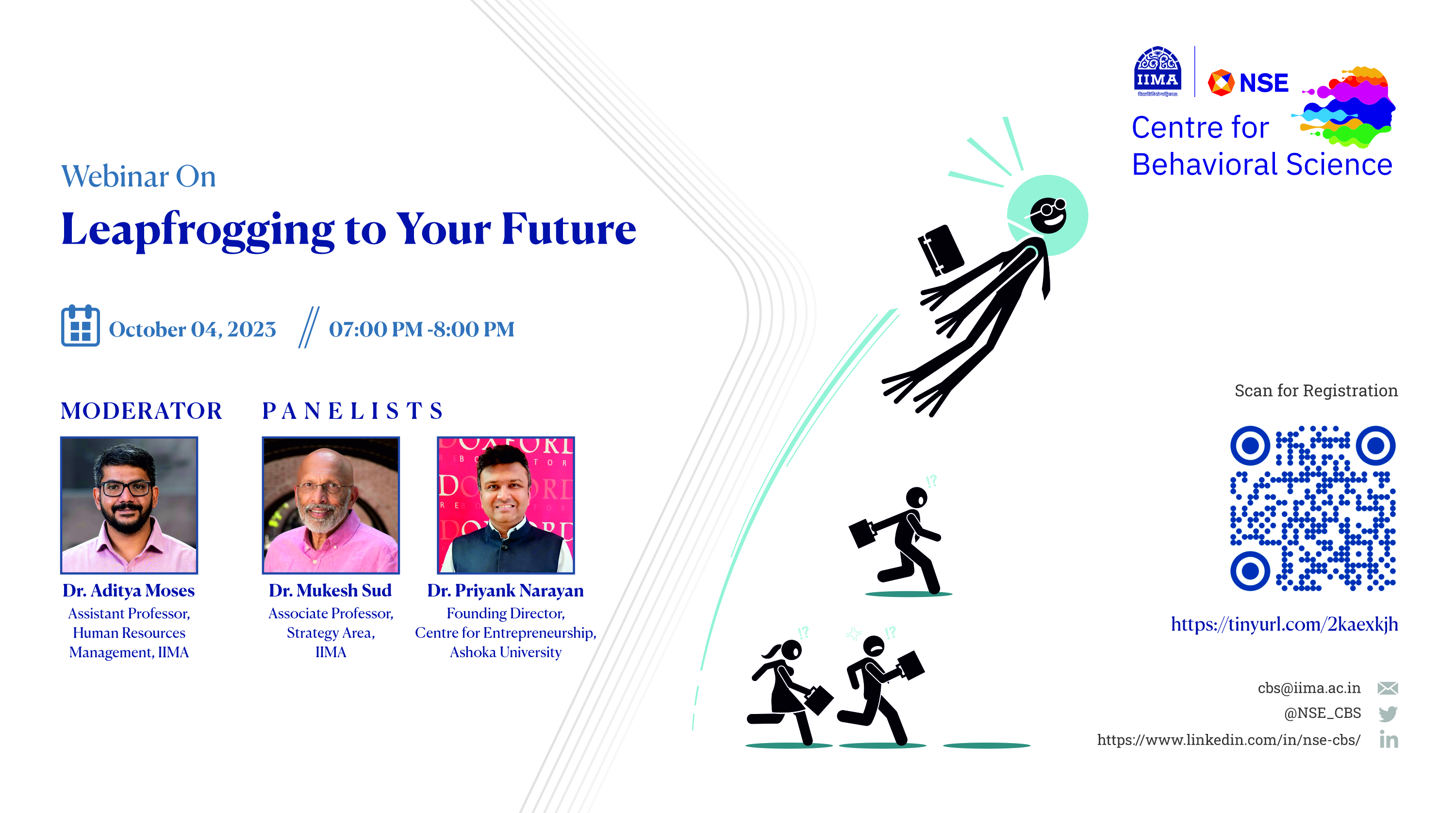
04/10/2023 - 04/10/2023

Dr. Mukesh Sud teaches courses in entrepreneurship & design thinking and is an Associate Professor at IIM Ahmedabad and a visiting faculty at Ashoka University. An entrepreneur for several years, Dr. Priyank Narayan teaches courses in design thinking, innovation management and developing an entrepreneurial mindset at Ashoka University. He is a guest faculty at IIT Delhi, IIM Ahmedabad, and HEC Paris. Dr. Narayan holds a PhD from IIT Delhi and has attended executive education programs at Harvard and Singularity University. Both speakers are the authors of, ‘Leapfrog: Six Practices to Thrive’. Dr. Aditya Moses is Assistant Professor of Human Resource Management at IIMA.
Volkswagen wanted people to embrace a healthier lifestyle. They decided to nudge commuters at a metro station to climb the stairs rather than take the escalator. Stairs at a Stockholm metro station in Sweden were made to look like the keyboard of a piano and when people climbed up or down, each step emitted a musical note. Many commuters even ran up and down for fun! Consequently, the number of people using the stairs increased by 66 per cent.
Nudges, when they are Easy, Attractive, Social and Timely (EAST)—can trigger desired modifications in mass behavior patterns. How therefore, can one use nudges to tweak one’s own behaviour to be, ‘built to thrive’ as opposed to being, ‘built to last’? Leapfrog is a concept in industrial organizations where a new entrant moves ahead of its competitors. This stands true for firms, societies and even individuals. From developing grit to nudging oneself; from mastering intellectual humility to dancing with disciplines and from learning the art of curation to thinking like entrepreneur—Leapfrog dives into six evidence-based practices that could enable individuals to shape and modify cognitive patterns to gain positive and successful outcomes.
Success hinges on resilience, ignited by a clear vision of your objective. Dr. Narayan emphasizes that reaching your goals demands unwavering passion and determination, involving deliberate practice and enduring the grind of regular efforts. In simpler terms, achievement involves staying committed to your passion, maintaining focused effort, and practicing patience, even during less thrilling moments. Discovering joy in small victories means breaking larger goals into manageable steps, delaying ultimate satisfaction for incremental pleasures, and gradually building momentum.
The concept of a 'T-shaped' profile, as discussed by the authors, underscores the importance of specialized expertise in one field while also having the capacity to collaborate across different domains. This approach, excelling in a primary discipline while effectively collaborating in various areas, is considered more advantageous in the long run than lacking discipline.
In the realm of entrepreneurship, a pivotal factor is the readiness to seek assistance and boldly request it, adding significant value through networking and tapping into the collective expertise of professional connections. Dr. Sud highlights the significance of intellectual humility in advancing rapidly, acknowledging the boundaries of one's knowledge, and actively engaging with individuals possessing greater expertise. Striking a balance between pride and a willingness to learn from others is crucial for continuous growth and innovation.
